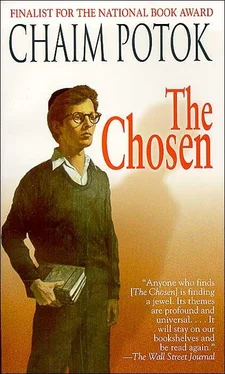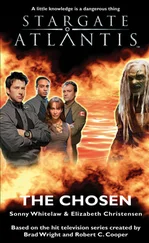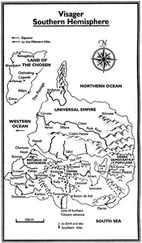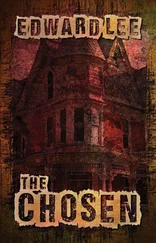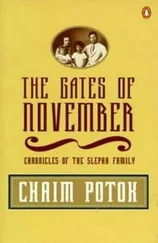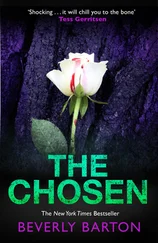
(First published in 1967)
To Dr Israel Charny, Mrs Jonas Greenfield, Rabbi Raphael Posner, and Dr Aaron Rosen, all of whom helped with the research, I offer my gratitude.
C. P.
When a trout rising to a fly gets hooked on a line and finds himself unable to swim about freely, he begins with a fight which results in struggles and splashes and sometimes an escape. Often, of course, the situation is too tough for him.
In the same way the human being struggles with his environment and with the hooks that catch him. Sometimes he masters his difficulties; sometimes they are too much for him: His struggles are all that the world sees and it naturally misunderstands them. It is hard for a free fish to understand what is happening to a hooked one.
– Karl A. Menninger
True happiness Consists not in the multitude of friends, But in the worth and choice.
– Ben Jonson
I was a son to my father…
And he taught me and said to me,
'Let your heart hold fast my words…'
– Proverbs
For the first fifteen years of our lives, Danny and I lived within five blocks of each other and neither of us knew of the other's existence.
Danny's block was heavily populated by the followers of his father, Russian Hasidic Jews in somber garb, whose habits and frames of reference were born on the soil of the land they had abandoned. They drank tea from samovars, sipping it slowly through cubes of sugar held between their teeth: they ate the foods of their homeland, talked loudly, occasionally in Russian, most often in a Russian Yiddish, and were fierce in their loyalty to Danny's father.
A block away lived another Hasidic sect, Jews from southern Poland, who walked the Brooklyn streets like specters, with their black hats, long black coats, black beards, and earlocks. These Jews had their own rabbi, their own dynastic ruler, who could trace his family's position of rabbinic leadership back to the time of the Ba'al Shem Tov, the eighteenth century founder of Hasidism, whom they all regarded as a God-invested personality.
About three or four such Hasidic sects populated the area in which Danny and I grew up, each with its own rabbi, its own, little synagogue, its own customs, its own fierce loyalties. On a Shabbat or festival morning, the members of each sect could be seen walking to their respective synagogues, dressed in their particular garb, eager to pray with their particular rabbi and forget the tumult of the week and the hungry grabbing for money which they needed to feed their large families during the seemingly endless Depression.
The sidewalks of Williamsburg were cracked squares of cement, the streets paved with asphalt that softened in the stifling summers and broke apart into potholes in the bitter winters. Many of the houses were brownstones, set tightly together, none taller than three or four stories. In these houses lived Jews, Irish, Germans, and some Spanish Civil War refugee families that had fled the new Franco regime before the onset of the Second World War. Most of the stores were run by gentiles, but some were owned by Orthodox Jews, members of the Hasidic sects in the area. They could be seen behind their counters, wearing black skullcaps, full beards, and long ear-locks, eking out their meager livelihoods and dreaming of Shabbat and festivals when they could close their stores and turn their attention to their prayers, their rabbi, their God.
Every Orthodox Jew sent his male children to a yeshiva, a Jewish parochial school; where they studied from eight or nine in the morning to four or five in the evening. On Fridays the students were let out at about one o'clock to prepare for the Shabbat. Jewish education was compulsory for the Orthodox, and because this was America and not Europe, English education was compulsory as well – so each student carried a double burden: Hebrew studies in the mornings and English studies in the afternoons. The test of intellectual excellence, however, had been reduced by tradition and unvoiced unanimity to a single area of study: Talmud. Virtuosity in Talmud was the achievement most sought after by every student of a yeshiva, for it was the automatic guarantee of a reputation for brilliance.
Danny attended the small yeshiva established by his father.
Outside the Williamsburg area, in Crown Heights, I attended the yeshiva in which my father taught. This latter yeshiva was somewhat looked down upon by the students of other Jewish parochial schools of Brooklyn: it offered more English subjects than the required minimum, and it taught its Jewish subjects in Hebrew rather than Yiddish. Most of the students were children of immigrant Jews who preferred to regard themselves as having been emancipated from the fenced-off ghetto mentality typical of the other Jewish parochial schools in Brooklyn.
Danny and I probably would never have met – or we would have met under altogether different circumstances – had it not been for America's entry into the Second World War and the desire this bred on the part of some English teachers in the Jewish parochial schools to show the gentile world that yeshiva students were as physically fit, despite their long hours of study, as any other American student. They went about proving this by organizing the Jewish parochial schools in and around our area into competitive leagues, and once every two weeks the schools would compete against one another in a variety of sports. I became a member of my school's varsity softball team.
On a Sunday afternoon in early June, the fifteen members of my team met with our gym instructor in the play yard of our school. It was a warm day, and the sun was bright on the asphalt floor of the yard. The gym instructor was a short, chunky man in his early thirties who taught in the mornings in a nearby public high school and supplemented his income by teaching in our yeshiva during the afternoons. He wore a white polo shirt, white pants, and white sweater, and from the awkward way the little black skullcap sat perched on his round, balding head, it was clearly apparent that he was not accustomed to wearing it with any sort of regularity. When he talked he frequently thumped his right fist into his left palm to emphasize a point. He walked on the balls of his feet, almost in imitation of a boxer's ring stance, and he was fanatically addicted to professional baseball. He had nursed our softball team along for two years, and by a mixture of patience, luck, shrewd manipulations during some tight ball games, and hard, fist-thumping harangues calculated to shove us into a patriotic awareness of the importance of athletics and physical fitness for the war effort, he was able to mold our original team of fifteen awkward fumblers into the top team of our league. His name was Mr Galanter, and all of us wondered why he was not off somewhere fighting in the war.
During my two years with the team, I had become quite adept at second base and had also developed a swift underhand pitch that would tempt a batter into a swing but would drop into a curve at the last moment and slide just below the flailing bat for a strike. Mr Galanter always began a ball game by putting me at second base and would use me as a pitcher only in very tight moments, because, as he put it once, 'My baseball philosophy is grounded on the defensive solidarity of the infield.'
That afternoon we were scheduled to play the winning team of another neighbourhood league, a team with a reputation for wild, offensive slugging and poor fielding. Mr Galanter said he was counting upon our infield to act as a solid defensive front. Throughout the warm-up period, with only our team in the yard, he kept thumping his right fist into his left palm and shouting at us to be a solid defensive front.
Читать дальше
